
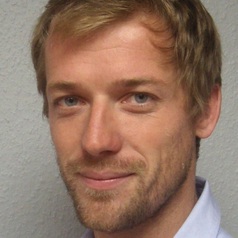
Gatien Falconnier
Écologue agronome, Cirad
I am passionate about bringing evidence of the contribution of agro-ecology to food security, climate change adaptation and mitigation. I am an agronomist by training. I have worked five years in Mali for the Internation Crops Research Institute for the Semi-Arid tropics, where I was experimenting together with farmers on integrated soil fertility management and diversification with legume crops. I am now working with CIRAD in Zimabwe, looking at the potential of agroecological practises to contribute to reducing food insecurity, while bringing benefits for climate change adaptation and mitigation. I have significant experience in the use of crop simulation models, to help design and assess relevant cropping systems.
Less ![]()
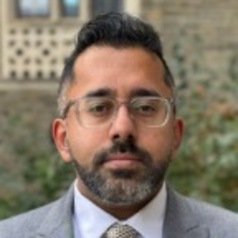
Gautam Hans
Associate Clinical Professor of Law, Cornell University
Gautam Hans is an Associate Clinical Professor of Law and Associate Director of the First Amendment Clinic. An expert on First Amendment law and technology policy, Professor Hans analyzes, through research and advocacy, the legal and policy issues implicating technology and civil liberties. Professor Hans also researches and works on issues relating to clinical legal education, with a particular focus on social justice and diversity, equity, and inclusion.
A frequent media commenter on privacy, free speech, and surveillance, Professor Hans regularly speaks at conferences and symposia on topics relating to civil liberties, clinical legal education, and technology law and policy. A leader in the national clinical community, he currently serves as a board member of the Clinical Legal Education Association and the Center for Study of Applied Legal Education and on the advisory board of the Initiative for a Representative First Amendment. Prior to his academic career, Professor Hans worked at the Center for Democracy & Technology in Washington, D.C., and San Francisco, CA, for four years, focusing on privacy, free speech, and surveillance law and policy.
Before joining Cornell Law, Professor Hans served as Associate Clinical Professor of Law and founding director of Vanderbilt Law School’s Stanton Foundation First Amendment Clinic. He completed his clinical teaching fellowship at the University of Michigan Law School.
Professor Hans earned his J.D., cum laude, from the University of Michigan Law School; his M.S. in information policy from the University of Michigan School of Information; and his B.A. in English and Comparative Literature from Columbia University. While in graduate school, he was Editor-in-Chief of the Michigan Telecommunications and Technology Law Review and served as a student-attorney in the Entrepreneurship Clinic and the Civil-Criminal Litigation Clinic. Before entering graduate school, Professor Hans was an editorial assistant in the Knopf Group of Random House.
Less ![]()

Gautam Jain
Senior Research Scholar in Financial Markets, Columbia University
Gautam Jain is a Senior Research Scholar at the Center on Global Energy Policy (CGEP) of Columbia University’s School of International and Public Affairs (SIPA). He focuses on the role of financial markets and instruments, including thematic bonds and carbon markets, in the transition to net-zero emissions, particularly in emerging economies.
Gautam joined the center after a long and fulfilling career in the financial industry where he covered emerging markets as a portfolio manager and strategist. He has worked at asset management firms and investment banks, including The Rohatyn Group, Barclays Capital, and Millennium Partners. He has helped manage emerging market local debt and hard-currency bond portfolios, encompassing currencies, interest rate instruments, and sovereign credits. He specialized in portfolio construction and asset allocation incorporating macroeconomic, policy, and political developments in emerging market and developing economies.
Gautam holds a Ph.D. in Operations Research from Columbia University. He also has an M.S. in Industrial Engineering from Iowa State University and a B.Tech. in Mechanical Engineering from the Indian Institute of Technology, Bombay. He is a CFA charter holder and a Cornell EMI Fellow. He has co-authored publications in the Journal of Derivatives, the Journal of Banking and Finance, the Journal of Applied Probability, and Probability in Engineering and Informational Science. He has also contributed chapters for the 2020 and 2021 Cornell EMI Annual Reports.
Less ![]()

Gavin Bowen-Metcalf
Lecturer in Biomedical Sciences, Anglia Ruskin University
Gavin joined the School of Life Sciences in 2021. He is a Cancer Biologist, with a broad research experience and interests that cover numerous aspects of cancer including development, invasion/migration, diagnosis, drug resistance and identification of novel drug targets.
Gavin completed his research training at Imperial College London, being awarded a Masters of Research in Oncology and Cancer Biology and a joint multidisciplinary PhD in Clinical Medicine and Biomedical Engineering. Whilst at Imperial, he developed a comprehensive knowledge of molecular oncology including cancer cell signalling pathways and diagnostics, as well as organic chemistry skills, including the design and development of novel fluorogenic biosensors.
Gavin also completed a postdoctoral research role at the Barts Cancer Institute, London. Research explored stem cell evolution and progression to cancer in disease states that predispose to adenocarcinoma, via histopathological means. Gavin has also previously been employed within the medical devices industry, the NHS, and the medical regulatory industry.
Gavin is an author on numerous peer-reviewed journals, and is also a Non-Executive Director for the leukodystrophy charity, Alex TLC.
Less ![]()
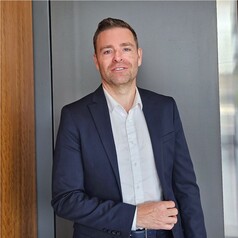
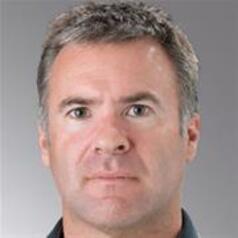
Gavin Dunbar
Senior Lecturer in Palaeoclimate, Te Herenga Waka — Victoria University of Wellington
At the Antarctic Research Centre, I am engaged in Marsden-funded research looking into the stability of the Ross Ice Shelf. This research focuses on the past response of the Ross Ice Shelf to climatic change, and how this has influenced ocean circulation in the Southern Ocean, including around New Zealand.
Less ![]()
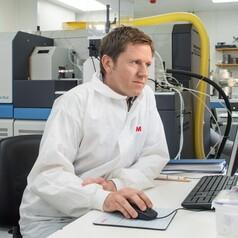
Gavin Foster
Professor of Isotope Geochemistry, University of Southampton
I am a palaeoclimatologist and isotope geochemist at the University of Southampton. I am a researcher of climate science, coral reefs, biomineralisation, laser ablation, isotopes and geology.
I lead The Foster Lab at the university. We use cutting-edge isotopic and geochemical techniques to better understand the impact of anthropogenic climate and environmental change on the Earth system.
Less ![]()
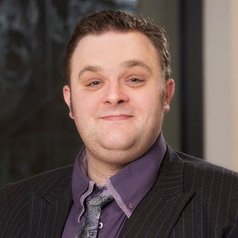
Gavin Harper
Gavin Harper is Energy Development Manager for the Birmingham Energy Institute and Visiting Researcher for the Centre for Solar Energy Research at Glyndŵr University where he previously co-ordinated the solar stream of the Welsh Energy Sector Training programme.
His research concerns sustainable business models in the automotive industry.
Gavin read for his ESRC funded PhD at the Centre for Business Relationships, Accountability, Sustainability & Society, Cardiff University. He also holds an MBA from Keele University and Masters degrees from Cardiff University in Business Research Methods, Loughborough University in Renewable Energy Systems, and the University of East London in Sustainable Architecture.
He sits on the Advisory Council of the National Energy Foundation. He has been published internationally by Mc Graw-Hill, New York, with books translated into Chinese and Korean and Italian.
Less ![]()

Gavin Metcalf
Cancer Biologist and Lecturer in Biomedical Science, Anglia Ruskin University
Dr Gavin Metcalf is a Cancer Biologist, Sub-Group Research Lead for Cancer Cell Biology, and Lecturer at ARU, with a broad research experience and interests that cover numerous aspects of cancer including development, invasion/migration, diagnosis, drug resistance and identification of novel drug targets.
Gavin completed his translational research training at Imperial College London, being awarded a Masters of Research in Oncology and Cancer Biology and a joint multidisciplinary Doctorate in Medicine and Biomedical Engineering. Whilst at Imperial, he developed a comprehensive knowledge of molecular oncology including cancer cell signalling pathways and diagnostics, as well as organic chemistry skills, including the design and development of novel fluorogenic biosensors.
Gavin also completed a postdoctoral research role at the Barts Cancer Institute, London. Research explored stem cell evolution and progression to cancer in disease states that predispose to adenocarcinoma, via histopathological means.
Gavin has also previously been employed within the medical devices industry, the NHS, The Wellcome Sanger Institute, and the medical regulatory industry.
Less ![]()

Gavin Midgley
Teaching Fellow in Accounting, University of Southampton
I commenced work at Southampton University in March 2016 as a Teaching Fellow in Accounting. Prior to this I have worked in the accounting profession for over 10 years (in both practice and industry environments) and am a fully qualified member of the Association of Chartered Certified Accountants (ACCA). I previously worked at Bournemouth University as an Associate Lecturer, where I was responsible for leading units in Financial and Management Accounting and also conducted various seminar classes on a variety of different topics including taxation and introductory economics.
I have recently commenced my first research study, which aims to examine media representation of UK Corporation Tax affairs of multinational companies operating in the UK.
Less ![]()

Gavin Prideaux
Associate professor, Flinders University
I scraped through year 12 and began a BSc at Flinders in 1987. After failing all first-year subjects except Biology I followed the path of least resistance into second and third year where I was introduced to evolution, palaeontology and the Australian biota. I studied kangaroo evolution for a PhD, then completed postdocs at the University of California, Naracoorte Caves and WA Museum before returning to Flinders in 2007. My research investigates links between patterns in Australian mammal evolution, extinction, biodiversity and environmental changes. I have spent much of the past 20 years retrieving old bones from caves or poring over the contents of museum drawers across the world.
Less ![]()

Gavin Wade
Senior Lecturer in Computer Games Technology, University of Portsmouth
My main area of interest is Games Development and the Games Industry as a whole, being active in games development since the mid-1980s. Subjects include, games programming, games art, games production, business and technology trends, analysis of the state of the industry and future directions. Game Engines including, Unreal Engine, Unity, and bespoke. VR/AR/XR.
Less ![]()


Gavin Charles Young
Departmental Visitor, Materials Physics, Research School of Physics, Australian National University
Less ![]()
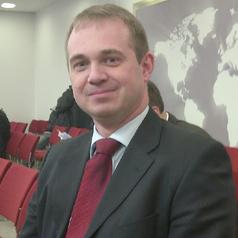
Gavin E.L. Hall
Teaching Fellow, Political Science and International Security, University of Strathclyde
Gavin E L Hall is a Teaching Fellow in Political Science and International Security at the University of Strathclyde. He explored NATO's post-Cold War transformation in his doctoral thesis, and maintains a research focus on the evolution of conflict in the digital age, and military transformation. You can follow him on twitter @GavinELHall.
Less ![]()

Gay Ivey
Professor of Literacy, University of North Carolina – Greensboro
Gay Ivey, PhD, is the William E. Moran Distinguished Professor in Literacy at the University of North Carolina-Greensboro. She studies reading motivation among children and adolescents and how schools might arrange for students to have literacy experiences that are more meaningful to them. Her work is focused on the socio-emotional benefits of engaged reading and the role of social interaction on students' growth and experiences in reading.
Less ![]()

Gayathri Krishna
PhD Candidate, School of Labour Studies, McMaster University
Gayathri Krishna is a Ph.D. candidate in the School of Labour Studies at McMaster University, Ontario. Her doctoral research is on the impact of urban development projects on the livelihood strategies of women informal workers in resettlement townships. She is a Research Assistant on the SSHRC-funded research project on Transnational Legal Governance, Modern Slavery and Forced Labour in Supply Chains: Canada in a
Global Context (Principal Investigator: Prof. Judy Fudge, McMaster University).
Less ![]()

Gayatri Thakor
PhD Student, Curriculum and Pedagogy, Ontario Institute for Studies in Education, University of Toronto
Gayatri is currently a 1st year Ph.D. student in Curriculum and Pedagogy at the Ontario Institute for Studies in Education, University of Toronto. She is interested in researching how global Indigenous pedagogies and the anti-colonial praxis of spirituality can be applied to teacher education programs to decolonize education. Gayatri previously worked in various roles pertaining to education and has always been deeply passionate about encouraging growth through diverse spaces of learning. She recently completed her Master of Education and has a Bachelor of Arts in Political Science.
Less ![]()

Gayle Brewer
QUALIFICATIONS
BSc, Psychology (Royal Holloway, London), 1999
MSc, Evolutionary Psychology (Liverpool), 2001
PhD, Psychology (UCLan), 2006
MEd, Professional Practice in HE (UCLan) 2007
MSc, Psychological Research Methods (Open University), 2014
PAPERS
1. Robinson, Sarita Jane and Brewer, Gayle (2016) Performance on the traditional and the touch screen, tablet versions of the Corsi Block and the Tower of Hanoi tasks. Computers in Human Behavior, 60 . pp. 29-34. ISSN 07475632 Item availability may be restricted.
2. Brewer, Gayle and Lyons, Minna (2015) Discrimination of sexual orientation: Accuracy and confidence. Personality and Individual Differences, 90 . pp. 260-264. ISSN 01918869 Item availability may be restricted.
3. Abell, Loren, Brewer, Gayle, Qualter, Pamela and Austin, Elizabeth (2015) Machiavellianism, emotional manipulation, and friendship functions in women's friendships. Personality and Individual Differences, 88 . pp. 108-113. ISSN 01918869 Item availability may be restricted.
4. Abell, Loren, Qualter, Pamela, Brewer, Gayle, Barlow, Alexandra, Stylianou, Maria, Henzi, Peter and Barrett, Louise (2015) Why Machiavellianism Matters in Childhood: The Relationship Between Children's Machiavellian Traits and Their Peer Interactions in a Natural Setting. Europe’s Journal of Psychology, 11 (3). pp. 484-493. ISSN 1841-0413
5. Brewer, Gayle, Hunt, Danielle, James, Gail and Abell, Loren (2015) Dark Triad traits, infidelity and romantic revenge. Personality and Individual Differences, 83 . pp. 122-127. ISSN 01918869 Item availability may be restricted.
6. Hendrie, Colin A., Brewer, Gayle, Lewis, Hannah and Mills, Francesca (2014) Contemporary and Historical Evidence to Suggest that Women’s Preference for Age at Birth of First Child Remains Consistent Across Time. Archives of Sexual Behavior, 43 (7). pp. 1373-1378. ISSN 0004-0002
7. Simpson, Victoria J., Brewer, Gayle and Hendrie, Colin A. (2014) Evidence to Suggest that Women’s Sexual Behavior is Influenced by Hip Width Rather than Waist-to-Hip Ratio. Archives of Sexual Behavior, 43 (7). pp. 1367-1371. ISSN 0004-0002
8. Lyons, Minna, Lynch, Aoife, Brewer, Gayle and Bruno, Davide (2013) Detection of Sexual Orientation ("Gaydar") by Homosexual and Heterosexual Women. Archives of Sexual Behavior . ISSN 0004-0002 Item not available from this repository.
9. Brewer, Gayle, Apell, Loren and Lyons, Minna (2013) It's not just a man-thing: testing sex as a moderator between peer attachment and machiavellianism, competition and self-disclosure. Individual Differences Research, 11 (3). p. 114. ISSN 1541-745X (Submitted) Item not available from this repository.
10. Brewer, Gayle and Howarth, Sharon (2012) Sport, attractiveness and aggression. Personality and Individual Differences, 53 (5). pp. 640-643. ISSN 0191-8869 Item availability may be restricted.
11. Hendrie, Colin A. and Brewer, Gayle (2012) Evidence to Suggest That Teeth Act as Human Ornament Displays Signalling Mate Quality. PLoS ONE, 7 (7). e42178-e42178. ISSN 1932-6203
12. Brewer, Gayle, Dewhurst, Annie M and Doran, Dawn (2012) Undergraduate Research Projects: practice and perceptions. Psychology Learning & Teaching, 11 (2). pp. 208-217. ISSN 1475-7257 Item not available from this repository.
13. Brewer, Gayle and Hendrie, Colin A. (2011) Evidence to Suggest that Copulatory Vocalizations in Women Are Not a Reflexive Consequence of Orgasm. Archives of Sexual Behavior, 40 (3). pp. 559-564. ISSN 0004-0002
14. Brewer, Gayle (2011) Personality and symptoms of psychological ill health among adult male offenders. American Journal of Men's Health, 5 (3). pp. 236-242. ISSN 1557-9883 Item not available from this repository.
15. Brewer, Gayle (2011) Psychological health and bullying among adult male offenders. International Journal of Prisoner Health, 6 (1). pp. 33-40. ISSN 1744-9200 Item not available from this repository.
16. Brewer, Gayle (2011) The evolutionary psychology of Shrek. In: Social political and economic aspects of Shrek. Palgrave Macmillan. Item not available from this repository.
17. Brewer, Gayle and Riley, C (2010) Sexual Dimorphism in Stature (SDS), jealousy and mate retention. Evolutionary Psychology, 8 (4). pp. 530-544. ISSN 1474-7049
18. Brewer, Gayle, Roy, Mark and Smith, Yvonne (2010) Domestic violence: the psychosocial impact and perceived health problems. Journal of Aggression, Conflict and Peace Research, 2 (2). p. 4. ISSN 1759-6599 Item not available from this repository.
19. Brewer, Gayle, Roy, Mark P and Watters, J. (2010) Testicular Self-Examination in an Adult Community Sample. American Journal of Men's Health . ISSN 1557-9883 Item not available from this repository.
20. Hendrie, C.A. and Brewer, Gayle (2010) Kissing as an evolutionary adaptation to protect against Human Cytomegalovirus-like teratogenesis. Medical Hypotheses, 74 (2). p. 222. ISSN 03069877 Item availability may be restricted.
Less ![]()

Gayle MacDonald
Professor, Women's Studies, Mount Saint Vincent University
I have served as faculty for 33 years in three Canadian universities, Socio-Legal Studies at Queen's University in Kingston, ON, (1989-1992) Criminology and Sociology at St. Thomas University in Fredericton, NB (1992-2014) and currently, Mount Saint Vincent University in Halifax. My research areas are feminist jurisprudence, deviance, social control and sex work. I have also served as Associate Vice President Research for a total of 11 years, 6 years at St. Thomas (2009-2014) and for 5 years at MSVU (2015-2020). I am currently Chair of Dimensions Equity, Diversity and Inclusion for MSVU and a faculty member in Women's Studies.
Less ![]()
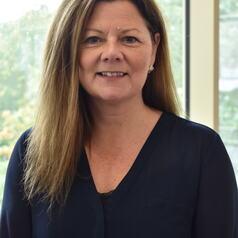
Gayle McPherson
Chair in Events and Cultural Policy, and Director of the Research Centre for Culture, Sport and Events, University of the West of Scotland
I am a Professor in Events and Cultural Policy and Director of the Centre for Culture, Sport and Events at the University of the West of Scotland. I established the Research Centre 2018. The Centre is already renowned for its work in sports events, culture and festivals and has secured £2 million in grants and consultancy (ESRC, SSHRC, AHRC, UKRI, HERA etc) over the last four years in collaboration with staff in the centre and a range of international partners. She has been an invited expert to national governments and international agencies, published 10 books and over 75 outputs (articles and chapters) and a number of significant reports and supervised 15 PhD students to successful completion, in areas of culture, events, sport diplomacy and cultural diplomacy.
I have acted as cultural advisor to Glasgow 2014 Commonwealth Games, Cultural and Legacy Advisory to Paisley's UK City of Culture, 2021 and I'm an independent Advisor to Commonwealth Games Scotland for 2026. I'm a member of the British Council Scotland Advisory Group and a Trustee of the Edinburgh International Cultural Summit. I am currently researching Major Sport Events and Disability Rights as part of an Social Sciences and Humanities Research Council grant to 2027 and working on a Playbook Guide for Festivals and Events commissioned by Spirit of 2012.
Less ![]()

Ge Chen
Assistant Professor in Global Media & Information Law, Durham University
Ge Chen is Assistant Professor in Global Media and Information Law at Durham Law School. His research interests are media and information law and their constitutional and rule-of-law aspects in international and comparative perspectives, with a focus on China. He was a Visiting Academic of the Programme in Comparative Media Law and Policy at the University of Oxford. He was a Postdoctoral Research Associate at, and remains an Associate of, the Centre for Intellectual Property and Information Law at the University of Cambridge. He was a Resident Fellow, and remains an Affiliated Fellow, of the Information Society Project at Yale Law School. He was a research associate at Mercator Institute for China Studies, the largest China-related think tank of the European Union. He is the author of Copyright and International Negotiations: An Engine of Free Expression in China? (Cambridge University Press 2017), a research monograph featured in Harvard Law Review.
Less ![]()
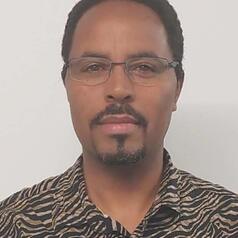
Geberew Tulu Mekonnen
Lecturer, School of Policing Studies, Charles Sturt University
Dr Geberew Tulu Mekonnen is a Lecturer at the School of Policing Studies, Charles Sturt University (CSU). Geberew holds a PhD in Education from the University of Tasmania (UTAS) in 2020. He also holds a M.Ed in Educational Development from Hiroshima University, Japan, and M.A in Linguistics from Addis Ababa University (AAU), Ethiopia. He developed a higher education governance model that accommodates the interests of university system participants, including instructors, students, lower and middle-level leaders, and senior management. Before joining CSU, he worked at the University of Tasmania in teaching, research, and research funding management. His research covered student learning assessment, teacher development, leadership, higher education policy, and at-risk youth in Australia.
Less ![]()


Gema Pérez Herrera
PDI. Profesor Ayudante doctor Departamento de Historia Contemporánea, Universidad de Valladolid
Gema Pérez Herrera, doctora en Historia Contemporánea desde el año 2017, con la tesis, hoy convertida en libro “José Pedro Pérez-Llorca, una biografía política”, publicado por Centro de Estudios Constitucionales en colaboración con el BOE. Licenciada por lala Universidad de Navarra en Historia y en Periodismo (2006-2012), posteriormente realicé un máster en Estudios Contemporáneos y latesis doctoral en el programa de Artes y Humanidades (2014-2017). He contado con numerosas becas para realizar mis estudios y ser colaboradoraen algunos departamentos, tanto privadas como estatales. Durante este tiempo realizóuna estancia de investigación de 6 meses en el de departamento de Governance de la Universidad de Georgetown en Washington DC, avalada por los profesores Eusebio Mujal León y Charles King.
Actualmente es profesor ayudante doctor en la Universidad de Valladolid, en el departamento de Historia Moderna y Contemporánea, de América y de periodismo. Ámbito desde el que desarrolla su docencia e investigación.
Sus líneas de investigación están centradas en elestudio de la España Reciente, especialmente de la Transición en sus vertientes política y cultural, en la representación de la Historia en el cine y en los estudios sobre la mujer. Han estado avaladas tanto por el Grupo de Investigación en Historia Reciente (GIHRE), el grupo de estudios sobre la mujer GENOVIFEM, la Red Winn,el proyecto proyecto «Perfiles del Centro Político: los protagonistas» (HAR 2016-75600-C2-1-P). Actualmente sigueperteneciendo aalgunos deellos, mantiene suslíneas de investigación en historia política y cultural de la Transición. Formaparte de un nuevo proyectodel Instituto Cultura y Sociedadsobre el estudio de la transmisión del conocimiento histórico de la España reciente en nuestros díasa través del cine: El presente del Pasado. Así mismo pertenece al Instituto de Historia Simancas de la Universidad de Valladolidy participa en un grupo de investigación financiado por el ministerio sobre la recuperación del Consenso Constituyente (RECOCONS).PID2021-123730OB-I00.
Cuenta conpublicacionesen revistas indexadas como Arbor, Historia del Presente, editoriales como Thomsom Reuters Aranzadi, el Centro de Estudios Políticos y Constitucionales, Escribana Books. En el ámbito de la docencia cuentacon experiencia predoctoral y postdoctoral en la Universidad de Navarra, tanto en español como en inglés, y un año de docencia como profesora en la Universidad de Piura (Perú), que me dio una perspectiva internacional y complementaria a mi estancia en Norteamérica, haciéndolecomprender mejor la realidad latinoamericana. Cuentacon experiencia en el campo de la gestión por su trabajo como Coordinadora del Grado de Historia en la UNIR y redactora de contenidos para varias de sus asignaturas. Entre sus publicaciones se encuentra la biografía política de José Pedro Pérez-Llorca, en la que se estudia en profundidad su papel en la configuración de la España constitucional y el Estado autonómico que surgen en los años de la Transición española. Un artículo, “UCD y sus gobiernos ante el Estatuto de Autonomía de Cataluña ( 1978-1979)” que analiza en profundidad el camino del Estatuto de autonomía catalán, y varios capítulos de libro en los que se estudian distintos aspectos de la política autonómica española en su contexto histórico. Ha analizado también la cuestión del consenso constituyente en el capítulo ( pendiente de publicación):«La Constitución de 1978: el reencuentro entre las dos Españas», y la política exterior española y sus relaciones con Estados Unidos en “La triple encrucijada española: el diseño de la participación militar de España en la OTAN (1981-1982)”, y “FRIEND OR FOE ? Spain, the United States and NATO’s issue after the arrival of the Socialist Party to the spanishGovernment, 1982 –1983”. Código ORCID: orcid.org/0000-0002-1662-8009
Experience
Less ![]()

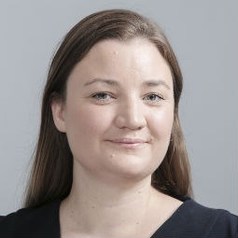
Gemma Davies
Associate Professor in Criminal Law, Durham University
Gemma joined Durham Law School as Associate Professor in Criminal Law in September 2022. Her research interests and expertise broadly lie at the intersection between criminal law and public international law. This includes exploring issues around transnational criminal law, extradition, European criminal law, Part Three of the Trade and Cooperation Agreement, and criminal jurisdiction amongst others. Her work aims to understand barriers to criminal justice cooperation, particularly between the UK and other states and seeks to facilitate better cooperation which also adequately protects the privacy and fundamental rights of citizens. In recent years she has worked on two funded projects which considered the implications of Brexit for criminal justice cooperation between the UK and Ireland and policing of the dark web. She has most recently written on UK access to electronic evidence stored overseas and the continued role EU data protection rules play in cooperation with third states such as the U.S., even after Brexit.
Her focus is on producing research which engages with policy and practice. She draws on her background as a barrister practising in criminal law from 2005 to 2012 and her many years of experience teaching students undertaking the vocational stage of qualification as a barrister at Northumbria University. Maintaining links with the profession continues to be important to her work. She regularly contributes to Parliamentary inquiries and consultations and has twice given oral evidence to a Parliamentary Committee which can be seen here and here. She has experience of writing policy focused research papers aimed at a non-academic audience and has written for think tanks such as UK in a Changing Europe and the LSE Brexit blog. She has made media appearances on radio and been cited by the Guardian, the BBC, and the Irish Times and the Irish Law Commission. She has also provided training to the judiciary on the extradition provisions of the Trade and Cooperation Agreement.
Outside of the university Gemma currently sits on the advisory board of the Independent Commission on UK-EU Relations focusing on the post-Brexit relationship between the UK and EU in the field of criminal justice and security cooperation. She is also an elected committee member of the European Criminal Law Association (UK) which aims to study, discuss and provide information on the development of the criminal law in Europe by means of seminars and publications. She also founded the UK-Irish Criminal Justice Cooperation Network with funding from the AHRC and previously was a committee member of the Association of Law Teachers. She has been Principal Investigator, Co-investigator or team member in 7 funded research projects which have been funded by the European Commission, Nordsfork, the Equalities and Human Rights Commission, the Society of Legal Scholars and the Arts and Humanities Research Council. She is book review editor of the International Journal of Evidence and Proof. She is currently the Bar Standards Board Lead External Examiner for Advocacy.
Less ![]()



Gemma Horton
Impact Fellow for Centre for Freedom of the Media, University of Sheffield
Gemma is the Impact Fellow for the Centre for Freedom of the Media (CFOM) at the School of Journalism, Media and Communication, University of Sheffield. She started the position in September 2022. She is also the Assistant Editor for the European Journal of Communication. From 2019-2022, she was a University Teacher in the Department of Communication and Media at the University of Liverpool where she taught on a range of topics including media freedom and human rights. She is a Fellow of the Higher Education Academy (FHEA). She has also worked as a Research Assistant for CFOM. Her work as a research assistant has involved her working on a number of projects. The first project was commissioned by the Independent Press Standards Organisation (IPSO) and involved ‘Examining the impact of IPSO on Editorial Standards and Complaints’ Handling for the press regulator in the UK.’ She also worked on the ‘Building an African media network with the African Media Initiative’ project.
She gained her PhD from the School of Journalism, Media and Communication at the University of Sheffield in January 2020. Prior to that, she graduated with an MA in Magazine Journalism at the University of Sheffield in 2017 and a Bachelor of Laws degree from the University of York in 2015. She also achieved a Grade A in her NCTJ Essential Media Law and Regulation exam and her Court Reporting exam. She has had extensive work experience in national magazines and news outlets, such as Radio Times, Closer, heat and Press Association. It was her experience at these publications that influenced her PhD. Gemma’s PhD research focused on the right to privacy of celebrities and how this is balanced with freedom of expression. It explored how celebrities’ privacy rights are protected in law and ethical codes in the UK, with a particular focus on whether anything has changed since the Leveson Inquiry. She adopted a comparative legal analysis for her research, comparing the laws of the UK to the laws of France and the US, alongside using qualitative methods, such as interviews and document analysis. Since then, her work has been published in Communications Law and the Journal of Media Law.
Less ![]()



Gemma McKibbin
Senior Research Fellow, The University of Melbourne
Dr Gemma McKibbin is Senior Research Fellow in the Department of Social Work at the University of Melbourne, working with Prof Cathy Humphreys in the Violence Against Women and Children research team. Gemma has a background in gender studies and a PhD focused on the prevention of harmful sexual behaviour carried out by children and young people. Along with an interest in harmful sexual behaviour, Gemma’s research focuses on preventing child sexual exploitation and dating violence, as well as on adult perpetration-focused prevention. She leads a number of child sexual abuse prevention and response action research projects, including Power to Kids with MacKillop Family Services and the Worried About Sex and Pornography project with Jesuit Social Services. Gemma specialises in trauma-informed, child-focused research interviews with vulnerable children and young people. She is passionate about supporting children and young people and providing them with a voice to government.
Less ![]()

- Market Data























